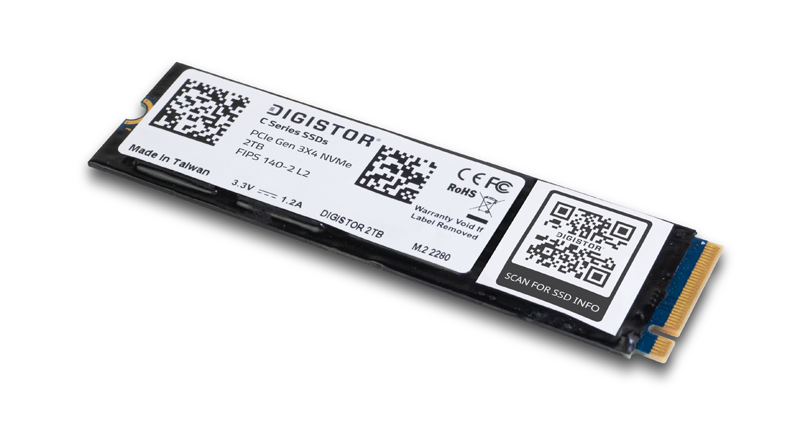DIGISTOR C Series SEDs for Zero Trust Environments and Securing Data at Rest (DAR) Now Available
C Series SEDs extend DIGISTOR’s industry-leading ability to eliminate the need for complex, costly customized systems to secure Data at Rest (DAR)
DIGISTOR® announced that its C Series Self-Encrypting Drives (SEDs) are available beginning now. The C Series SEDs, powered by Cigent®, are available for retrofit or integration through DIGISTOR OEM and integrator partners.
The C Series SEDs broaden the company’s comprehensive data security solutions and make it easy to cost-effectively protect sensitive data on laptops, desktops, and other user endpoint devices.
Perfect for zero trust architectures, C Series SEDs are available in two versions:
- C Series Select. The Select series provides data invisibility, tamper-proof credentials, and zero trust file access controls. The Select series is available in a variety of form factors based on our off-the-shelf TCG Opal and FIPS 140-2 L2 validated SEDs.
- C Series Advanced. The Advanced series includes Select capabilities plus additional firmware that provides verified data destruction, secure access logs, and keep-alive heartbeat. C Series Advanced is available in the FIPS 140-2 L2 M.2 NVMe form factor.
“With today’s heightened cyber threats, militaries and governments more than ever need to employ trusted architectures to better protect end-point data at rest. Our new C Series drives add critical zero trust architecture capabilities to our line of secure SEDs making it simpler and more cost-effective to secure data at rest than ever before,” said Robin Wessel, Executive Vice President, CDSG.
The C Series SEDs augment DIGISTOR self-encrypting SEDs with easily implemented, flexible file-level encryption and allow users to choose whether files are always locked or dynamically locked based on AI threat detection. Once locked, files are available only to authenticated individuals. The C Series supports multi-factor authentication, including Windows Hello – Facial Recognition, Fingerprint, PIN, Google Authenticator, and third-party authentication solutions like Cisco Duo.

